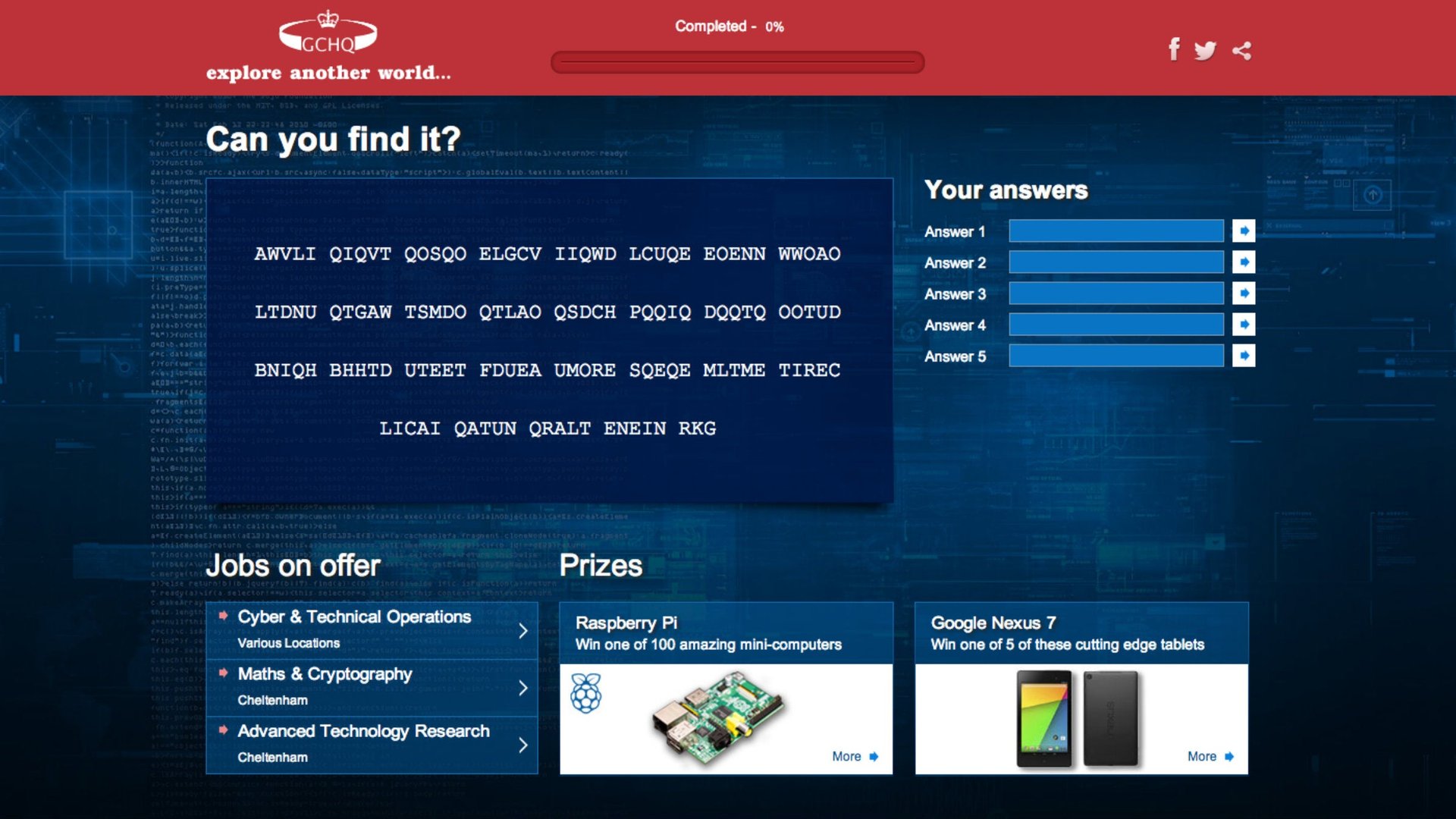These are the codes you need to crack to get a job as a British cyberspy
A website, canyoufindit.co.uk, just went live. It contains 28 sets of five letters and one set of three letters. There are five answers. If you get them right, you may be on your way to joining GCHQ, Britain’s signals-intelligence agency, in either the “cyber and technical operations,” “maths and cryptography” or “advanced technology research” departments. The website was registered in March to TMP Worldwide, a recruitment company that has in the past helped GCHQ search for women engineers.


A website, canyoufindit.co.uk, just went live. It contains 28 sets of five letters and one set of three letters. There are five answers. If you get them right, you may be on your way to joining GCHQ, Britain’s signals-intelligence agency, in either the “cyber and technical operations,” “maths and cryptography” or “advanced technology research” departments. The website was registered in March to TMP Worldwide, a recruitment company that has in the past helped GCHQ search for women engineers.
This is not the first time GCHQ has used puzzles to find skilled programmers. In 2011, the agency set up a similar, now-defunct website, titled “Can you crack it,” which the Telegraph newspaper later reported led to a “path to a job” for all who solved its puzzles. Cracking it involved several steps that required programming skills to complete, at the end of which lay a form to apply to GCHQ.
Such methods may be essential for GCHQ, which has a tough time attracting and retaining staff. Ian Lobban, director of GCHQ since 2008, told the intelligence and security committee of Parliament early in 2011 that his agency can offer recruits a fantastic mission but can’t compete with the salaries offered by the private sector. The agency has since put in place more “flexible packages for internet specialists.” By January this year Lobban was hopeful:
I think we’ll always have fewer of these people than we would like. I think we will recruit fewer than we would like… I think we will still lose people, but I think we’ll have a much better pipeline of talent in. I think also we’ll have a much better disposed staff. People will leave. People may come back. And one of the metrics for me is that people who we’ve already lost may now come back to us.
The government has committed to spending (pdf) an additional £210 million ($331 million) on the UK’s National Cyber Security Programme by 2016, on top of the existing £650 million annual budget. Britain’s Ministry of Defence is also considering recruiting computer specialists into its reserve forces.
In the intelligence committee’s report (pdf, p. 20), the number of GCHQ staff working on internet communications has been redacted, but the phrasing implies it’s pretty large. “GCHQ now has *** working solely on cyber defence (the total extent of GCHQ’s work on cyber is much greater, but is difficult to quantify as it is spread across most of its business).” The same report noted enviously, however, that Britain “cannot hope to match the resources of the US,” which is recruiting a further 4,000 people to its cyber command.
There are some clues that GCHQ might be aiming at a wider audience with its latest recruitment campaign: Unlike the last one, it is clearly labelled as a GCHQ website. And just in case a chance of becoming a real-life spook in glamorous Cheltenham wasn’t enticing enough, the agency is also offering five Nexus 7 tablets and 100 Raspberry Pi computers to winners.